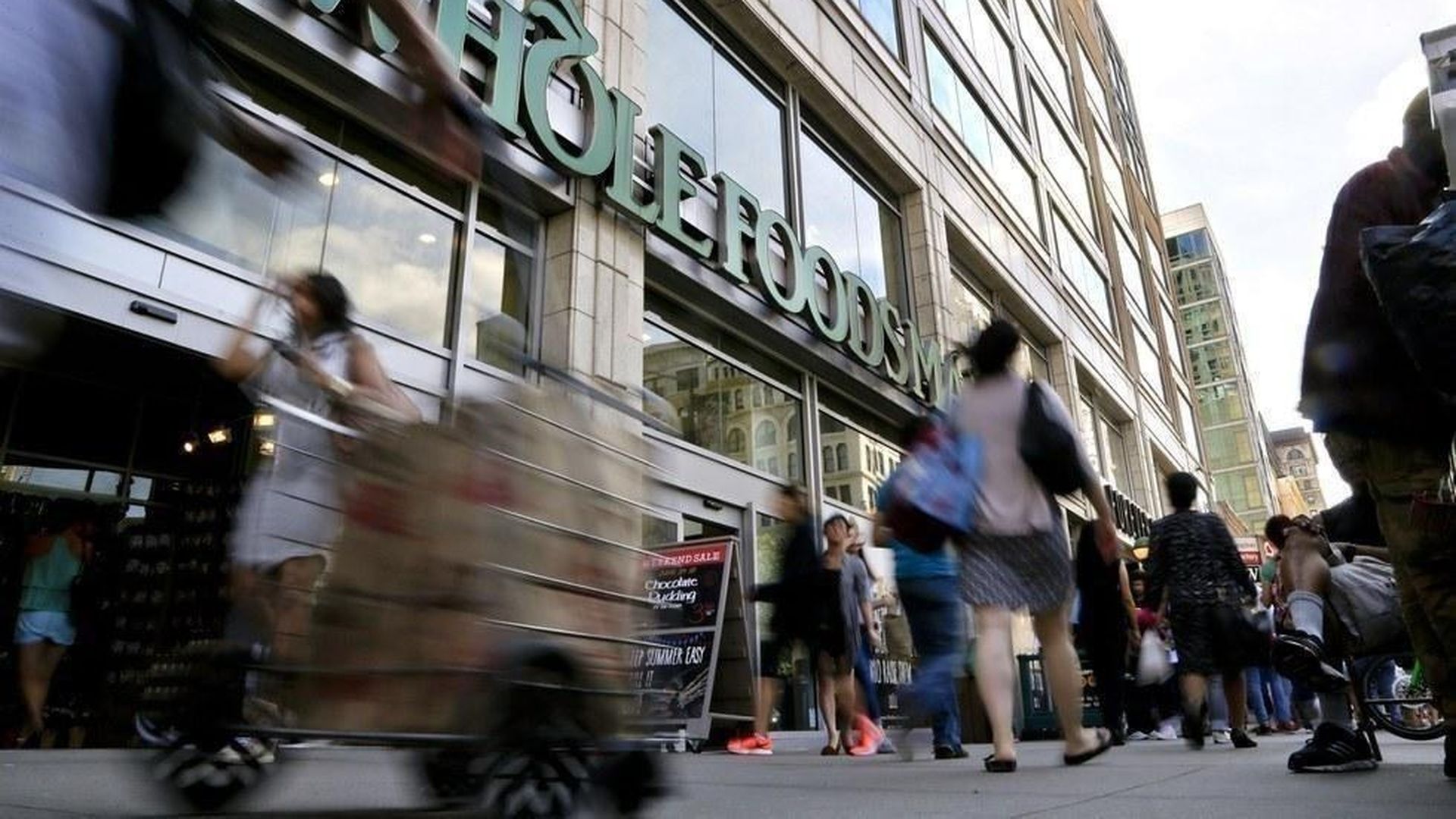Amazon unlikely to get a rival bid for Whole Foods
Add Axios as your preferred source to
see more of our stories on Google.

Julie Jacobson / AP
Amazon today agreed to buy Whole Foods for $13.7 billion, or $42 per share, in an agreement that seems impervious to a rival offer for three reasons:
1. Cash is king: Amazon is paying cash for Whole Foods. For the grocer, this increases the certainty of close ― as compared to a leveraged buyout, where the purchasers would still need to secure debt commitments (Amazon also is raising debt, but has plenty of cash on hand, were it necessary). Who else could afford to compete on cash? Not Wal-Mart, which only has $6.5 billion, or Kroger, which doesn't even have $400 million. Theoretical possibilities are Alphabet (which has done some fresh grocery delivery) and Apple (which has physical retail experience), but there has been no indication that either want to buy into this sort of business.
2. Antitrust: Physical groceries (e.g., Albertsons) or generalist retailers (e.g., Wal-Mart) could run into FTC troubles on a Whole Foods purchase. Amazon, however, only has one physical grocery store right now (a concept site in Seattle), so it would be very tough to make an antitrust case stick.
3. Price premium: Whole Foods would have to pay a $400 million termination fee to Amazon, were it to take a rival offer. That means another bidder would need to pay a minimum of $14.1 billion just to match.
